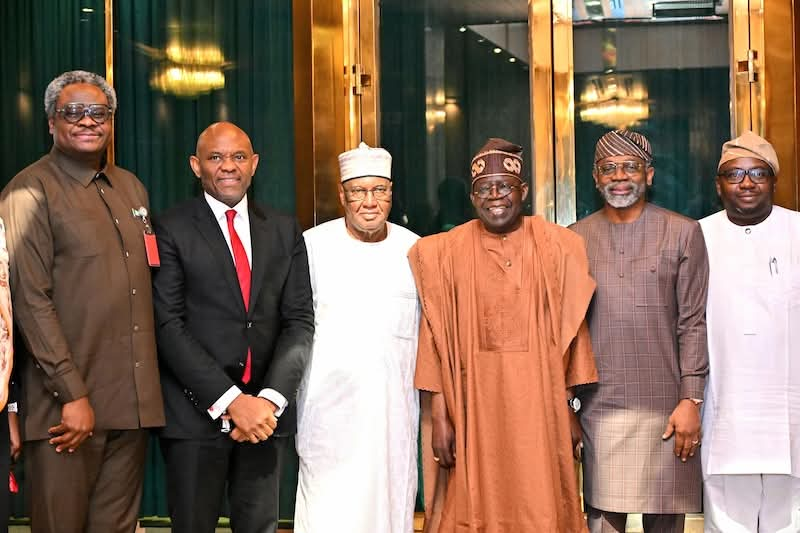As Power Firms, Bankers Warn of Shutdown, Foreclosure Threats
President Bola Tinubu on Friday assured electricity generation companies (GENCOs) that his administration is committed to settling the longstanding debts owed to them, with a proposed ₦4 trillion bond programme receiving his anticipatory approval.
Speaking during a meeting with members of the Association of Power Generation Companies, led by retired Colonel Sani Bello, at the Presidential Villa in Abuja, the President appealed for patience, noting that the government must complete the verification and validation of the claims before payments are made.
“I accept the assets and liabilities of my predecessors, and there is no question about that,” President Tinubu said. “But that acceptance must be on credible grounds. I need to wear the audit cap of verifiability and authenticity.”
The meeting, which included key stakeholders in the power and financial sectors, comes amid growing fears of a national blackout due to liquidity challenges and mounting debts.
The President’s Special Adviser on Energy, Mrs. Olu Verheijen, disclosed that as of April 2025, the Federal Government is exposed to ₦4 trillion in verified and unverified claims by GENCOs—an accumulation dating back to 2015. The Nigerian Bulk Electricity Trading Company (NBET) has so far validated ₦1.8 trillion of those claims.
“While there is anticipatory approval of the ₦4 trillion bond programme, it is subject to negotiations and final settlement,” Verheijen clarified, stressing that only validated amounts will be honoured.
The President, while reaffirming his belief in a market-driven electricity sector, emphasized the need to avoid extreme recovery measures by lenders.
“To our friends in the banking sector, I ask that we avoid foreclosures. Sharpen your pencils, but keep an eraser handy. Let’s persevere together,” Tinubu urged.
Minister of Power, Chief Adebayo Adelabu, praised the President for his proactive reforms, which he said have restored investor confidence and resulted in improved sector performance.
He highlighted several achievements under Tinubu’s leadership, including:
- The signing of the Electricity Act, 2023, decentralizing the power market.
- Launch of Nigeria’s first Integrated National Electricity Policy in 24 years.
- Attraction of over $2 billion in private capital.
- Growth in annual sector revenue from ₦1 trillion in 2023 to ₦1.7 trillion in 2024.
- Expansion of generation capacity from 13,000 MW to 14,000 MW.
- Record daily energy delivery of 120,370 MWh in March 2025.
- Zero national grid collapse recorded in 2025.
Adelabu warned, however, that the sector’s liquidity crisis remains severe, risking a system-wide collapse if not addressed.
“Mr. President, the grave implications of this debt overhang, including the risk of a nationwide shutdown of generation assets, demand your immediate support, even if partial and phased,” he said.
Business leaders at the meeting echoed the urgency. Chairman of Heirs Holdings, Mr. Tony Elumelu, described the situation as critical.
“Mr. President, we’ve come to you as a last hope. The generating companies are heavily indebted to banks, and foreclosure threats are real. Not because we’re not doing our jobs, but because the system owes us trillions,” Elumelu said.
He praised Tinubu’s reforms in the oil and banking sectors, stating that the same resolve is now needed in electricity.
“We don’t need power to complete your transformation—we need power to enable it,” he added.
Kola Adesina, another power sector leader, stressed the need for immediate liquidity injection and better gas supply arrangements.
“Liquidity is the oxygen of our business. The Afam axis plants are underperforming due to unpaid gas bills. We propose unlocking 800 million cubic feet of gas through NLNG to boost power supply,” he said.
The high-level meeting was attended by the Chief of Staff to the President, Femi Gbajabiamila; Coordinating Minister of the Economy and Finance, Wale Edun; Minister of Information and National Orientation, Mohammed Idris; and other top government officials and industry regulators.

